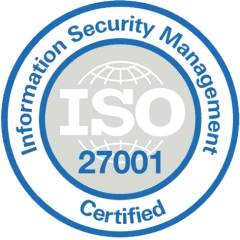A recent survey by the Times of India highlighted that the need for invoice discounting from small and medium-sized businesses have reached nearly ₹15 lakh crores , yet a substantial portion of this demand remains unmet.
This shortfall presents a compelling opportunity for retail investors to engage in the burgeoning field of invoice discounting. Traditionally dominated by banks and large financial institutions, this market is now becoming increasingly accessible to retail investors.
Innovative solutions like altSmart by altGraaf are playing a key role in bridging this gap, allowing investors to participate in invoice discounting while diversifying their portfolios and earning competitive returns. By tapping into this emerging opportunity, you can support the financial needs of small- and mid-sized businesses while positioning yourself for potential growth in your investment strategy.
Let’s explore how investors can leverage altSmart to participate in invoice discounting and seize this opportunity.
What is altSmart?
altSmart is a structured debt investment that pools invoices securitised through pass-through certificates (PTCs) with escrow control and partial principal protection in some cases. These invoices act as collateral for the investment, and either altGraaf or an external trustee manages repayment through an escrow account.
How Does altSmart Work?
Cash flow is essential for any business to operate smoothly, as it ensures that operations continue without interruption while waiting for payments from buyers. Typically, buyers may take a month or two to settle their invoices, which can strain a company’s finances. This is where altGraaf steps in, offering solutions that help businesses maintain a steady cash flow and manage daily expenses effectively.
Let’s take a look at how altSmart works.
Let’s say Rupa Textiles, a (readymade clothes manufacturer, is a company that requires invoice financing against the invoices it raised on SalesBazaar (an e-com company).
- It reaches altGraaf to finance the invoices it needs for its working capital requirements against a 90-day repayment tenure.
- Rupa Textiles, the seller, raises an invoice against SalesBazaar, the buyer of goods. The buyer’s bank issues a bank guarantee (BG) in the favour of the seller. This creates security for the seller, as the bank guarantees the buyer will pay the invoice amount on the tenure
- While financing the invoices via the altGraaf platform, Rupa Textiles transfers the bank guarantee’s Power of Attorney (POA) to altGraaf.
- At the end of the credit period (90 days), SalesBazaar repays the funds directly into the altGraaf-controlled escrow account. altGraaf then distributes it to investors.
- In the event of delay, if SalesBazaar cannot repay the amount, altGraaf initiates the process of invoking the bank guarantee post 20 working days from the scheduled date of repayment offering bank guarantee and escrow control
Key Risk Mitigants for altSmart
- altGraaf Controlled Escrow Account: Escrow account control is a powerful concept because buyers pay directly to that account, meaning that the seller (Rupa Textiles) cannot touch those funds, ensuring transparency in managing funds
- Security via Bank Guarantee: The bank guarantee fully secures investors’ money. If the buyer fails to repay the money, altGraaf can invoke. Usually, it takes around five business days to receive payment from the bank after invoking the bank guarantee
- Credit Due Diligence: altGraaf conducts an exhaustive three-month due diligence process to ensure the businesses on the platform are fit for invoice financing. This rigorous process eliminates credit-unworthy borrowers, significantly reducing borrower credit risk
Potential Risks in Invoice discounting Investments:
- Fraud Risk: If the bank finds any documents, such as the invoices or proof of delivery, to be fraudulent, it might reject the claim
- Operational Risks: This includes issues with documentation, communication, or gaps in process execution
- Legal Risk: If the documents provided contain inconsistencies or mistakes, the claim might be denied due to legal risk
- Bank Risk: Bank risk involves the possibility of the issuing bank facing financial challenges, leading to scenarios where it might not fulfil obligations, like honouring a bank guarantee
Conclusion: Is altSmart the Right Investment Choice for You?
altSmart is an attractive investment option for investors with different levels of risk tolerance, especially for those who prefer low-risk investments that offer stable returns. With a short investment tenure of one to six months, altSmart stands out in the investment landscape. The added security features, including 100% principal and interest protection, bank guarantees, and escrow control, further enhance its appeal.
By investing in invoice discounting through altSmart you can not only diversify your portfolio but also contribute to the cash flow of businesses, enabling them to access the funds necessary for their daily operations. If you prioritise safety and consistent yields, altSmart, with an average yield of 10.5%, is undoubtedly a good choice for your investment strategy. However, as with any investment, it’s essential to carefully evaluate your risk tolerance and investment goals before proceeding.
FAQs about altSmart
What is the minimum investment amount for altSmart?
The minimum investment amount for altSmart is ₹25,000
What Does Escrow Control Mean in altSmart Investments?
In invoice discounting, escrow control refers to a system where customers make payments into a trust account held in the business’s name. The invoice discounting company oversees these funds until all terms of the agreement are fulfilled. This process ensures that the transaction is completed as agreed, providing security and trust for both parties involved.
In the case of altSmart, altGraaf employs escrow control, managing the funds until the investment terms are met, ensuring the safety of your investment.
What is the Investment Tenure for altSmart?
The Investment tenure is 30-90 days.
Is my altSmart Investment Secure?
Yes, the investment is secured by a bank guarantee.
What is a Bank Guarantee in the Context of altSmart?
A bank guarantee is a financial instrument issued by a bank to guarantee that a fund issuer will fulfil their obligations under a contract or agreement. If the issuer fails to fulfil their responsibilities, the bank will compensate the other party for the losses. It provides assurance and security for both parties involved in a transaction.
Grow your wealth with exclusive access to high yield alternative fixed income opportunities from altGraaf. Join us today to gain access to these new-age fixed income products and build a diversified growth portfolio that can be tailored to meet your financial goals and risk appetite.



